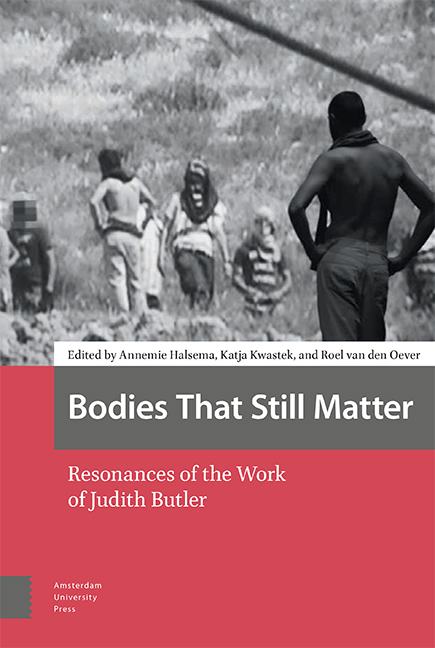Talking Back as an Accented Speaker?: Reframing Butler’s Idea of Subversive Resignification
Published online by Cambridge University Press: 27 May 2021
Summary
Abstract
In this essay, I offer an analysis of the biblical story of the shibboleth incident and Amy Tan's essay “Mother Tongue” (1996), both of which illustrate how accented speech is manipulated and construed as an act that prefigures violence and mistreatment. I interpret such violence as showcasing Judith Butler's observation that language is able to act and even act against the speaker. However, whereas Butler understands the wounding power of language as a result of us being constituted in language, which may inflict on any linguistic being, I argue that we are not invariably vulnerable in different languages. I conclude by observing that accented speech, as a case of linguistic survivability, not only challenges Butler's generalized account of linguistic vulnerability, but also raises the question of how to respond to the kind of violence that exploits precisely the incongruity between body and speech.
Keywords: accent, body, linguistic vulnerability, speech acts, resignification
Accented Speech Acts
Among all the negative stereotypes that plague the image of the foreigner, the complaint about the alienness of the foreigner's mother tongue is a typical one. In one of his seminars on hospitality, Jacques Derrida compares the foreigner to the sophist, saying that “it is as though the Foreigner were appearing under an aspect that makes you think of a sophist, of someone whom the city or the State is going to treat as a sophist: someone who doesn't speak like the rest, someone who speaks an odd sort of language” (Derrida 2000, 5). The mother tongue of the foreigner is seen as a linguistic veil that isolates the speaker and masks his or her transparency. At the same time, to be a foreigner means to uproot the mother tongue and graft it onto a new language. The non-native accent, as a symptom of “transplant rejection,” thus appears as a “defensive reaction” of a tongue whose “immune system” alerts the speaker to the invasion of alien and potentially harmful substances. Thus, to the foreigner, the accented tongue is at once the veil and the revealer, the protection and the obstacle.
One of the definitions of “accent” given in the Oxford English Dictionary reads: “A way of pronouncing a language that is distinctive to a country, area, social class, or individual.”
- Type
- Chapter
- Information
- Bodies That Still MatterResonances of the Work of Judith Butler, pp. 65 - 76Publisher: Amsterdam University PressPrint publication year: 2021



